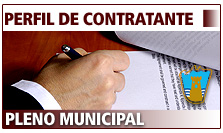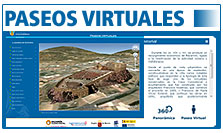WHICH ACTIVITIES HAVE TO CLOSE FROM THIS MONDAY AND WHAT IS RECOVERABLE PAID LEAVE?
The Prime Minister will be raising the level of confinement measures this Sunday, in an extraordinary council of ministers, which will mean the total closure of non-essential economic activities
The Prime Minister, Pedro Sánchez, announced this Saturday a new twist in the measures of confinement to our society. Starting this Monday, all non-essential economic activity will be stopped for at least two weeks, while the state of alarm persists.
❓1. What economic activities can open this Monday?
- From this Monday, the Prime Minister has ordered the closure of all activities not considered essential. It was one of the calls from many autonomous presidents and the method that has been used in Italy for the last week. When asked about the affected sectors by this new measure, Sánchez referred to the sectors already defined in the first decree that manifested the state of alarm. Initially, much of the industry and, for example, the construction sector, were allowed to open. From Monday this will no longer be the case. Factories whose production has not adapted to the manufacturing of sanitary material or that are considered critical for the supply of food or essential goods will not open their doors.
❓2. Which activities will continue operational?
- The decree issued on the 14th of March suspended the opening of retail premises and establishments to the public, with the exception of retail commercial establishments providing food, beverages, products and essential goods, pharmaceutical establishments, medical, optical and orthopaedic products, hygienic products, hairdressers, press and stationery, automotive fuel, tobacconists, technological and telecommunications equipment, pet food, internet commerce, telephone or correspondence, dry cleaners and laundries. Any industry that provides these services will be able to continue operating.
❓3. When will the total lock on the economy be in force?
- The Government will approve this measure tomorrow, in an extraordinary Council of Ministers, which will be in force from said Monday until the state of alarm prolongs. For now, until the 9th of April.
❓4. Who will pay staff who must stay home?
- The Government has announced a paid leave for non-essential activities workers who are not going to work during these two weeks, from Monday, March 30 to April 9. According to Sánchez, while this extraordinary state lasts, staff "will receive their wages as normal" thanks to this permit. "The idea is that a worker who works on a construction site, from March 30 will not be doing it and may have said paid leave. On the other hand, a nurse will be doing it," the Prime minister gave as an example.
❓5. Is this agreed with employers and workers unions?
- Sánchez has said that unions and employers have only been informed of this new measure. The president hopes that it will serve to decongest hospitals. "It is a forceful measure," said the president, who explained that the objective is to reduce mobility so that it resembles what you see on weekends.
❓6. Is the media essential?
- Yes, the media will be able to continue operating normally starting this Monday. Their activity, as the president has explicitly specified, is considered essential. Kiosks will also remain open, same as they have been up to now.
❓7. Will one still be able to go to the supermarket from Monday?
- Yes. All economic activities focused on the food supply of citizens are considered essential, therefore they will be able to operate to a certain degree of normality from this Monday until the alarm state extends. The entire primary sector, its transportation and distribution to guarantee supply must continue to operate.
❓8. Will it be possible to continue using public transport?
- Yes, public transport will not be cut off, so that people who have to go to their essential jobs can continue to do so. The services, however, will be affected, as is already happening.
❓9. How am I sure if my work is affected by the shutdown of the economy? Should my company notify me?
- The directive will detail the definitive list of the activities considered essential tomorrow, after the extraordinary council of ministers. Although a draft is already going around, it should be remembered that the activities that were prohibited in the first decree were later modified, for example, the activity of hairdressing salons and dry cleaners, which were initially permitted, were later forced to close for reasons of health. If you work in a company that is not dedicated to the food supply, of basic necessities or of supply or services considered essential, such as the toiletries, it is most likely that you should not go to work this Monday. Your company will confirm this if doubts persist.
❓10. Why is it being said that Easter will be extended?
- What the Government is seeking is to imitate the behaviours in the advance of weekends, prior to the virus. People stay home, there are no commutes to jobs and infections are reduced. That is why, in practice, the aim is to extend the shutdown of the activity that occurs on weekends, by two weeks. The idea, Sánchez said, is to anticipate the festive days of Easter (Semana Santa) to "significantly" reduce mobility and cut further infections and contaminations and also to reduce the number of hospitalized in order to "alleviate" the ICU’s. "If we achieve the levels of mobility of weekends, which isn’t much of difference, but it is significant enough, to reduce transmission amongst all of us and to further constrain the strong transmission of the pandemic, I think we will be making a solidary effort set to defeat this common enemy", said the Prime Minister.
❓11. Have similar measures been taken in other countries?
- Yes, Italy has been applying a similar lock on its economy for a week now. It has been relatively successful, although its government is already studying granting minimum exemptions to companies in forced unemployment and evaluating with employers and unions, if there can be productive sectors that, although maintaining the maximum austerity with respect to social distancing and all possibilities of working remotely, can begin activity again.
❓12. Has this decision been made late in Spain?
- The position defended so far by the directive, which has been repeatedly defended by the Vice President of Economic Affairs, Nadia Calviño, was that the measures adopted now were already restrictive enough and were already causing a significant impact on our economy. Businesspeople have also publicly defended the need to maintain as much activity as possible.









